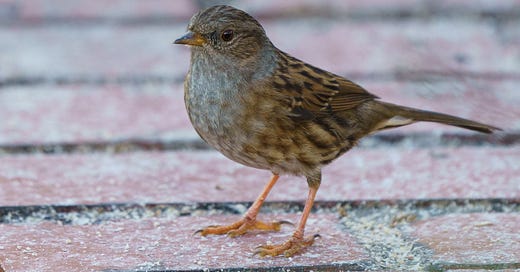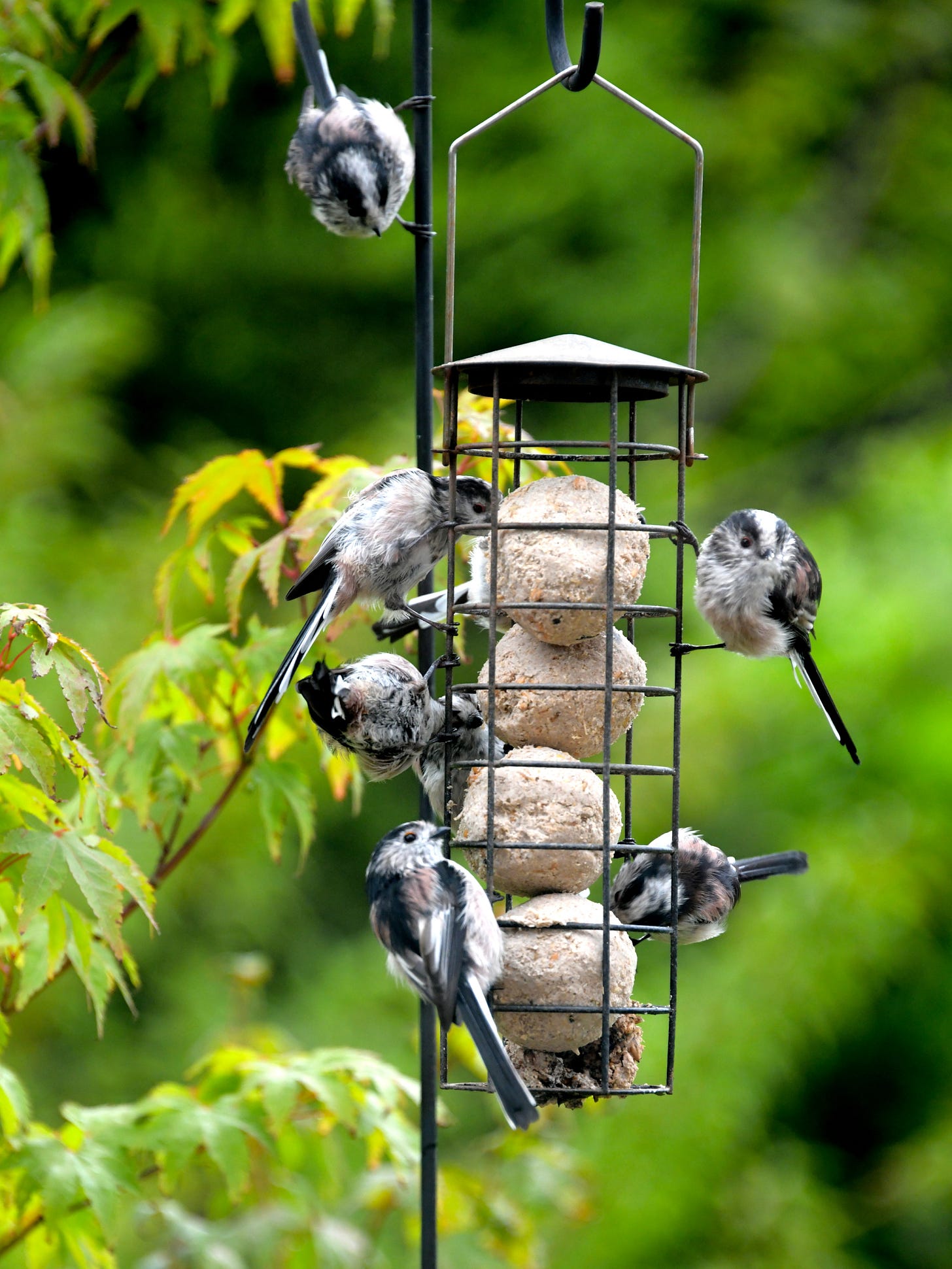This weekend there was a whole hour where I was not aware of my tinnitus.
I was sitting in my office with binoculars and a flask of coffee, watching the birds in my garden. And I was doing so with a purpose.
Every January here in the UK the RSPB holds their Big Garden Birdwatch where you sit for an hour recording how many birds land in your garden and what kind they are.
For 60 minutes (yes, I’m such a stickler for these things that I set a timer on my phone) I paid attention to every flit and flutter in my garden, and cursed whenever next door’s cat sashayed through.
It’s unexpectedly stressful trying to count a flock of long-tailed tits as they drop, perfectly synchronised, into our bare apple tree, then dash to and from the fat ball feeder in a blur of fluff and chittering!
The arrival of these super-cute birds always brings work to a halt if I spot their appearance out of the corner of my eye. I freeze, fingers hovering over the keyboard, in case I startle them into flight.
Birdwatching always brings back fond memories for me. When my parents split when I was 4 years old, watching birds was something my Dad and I started to do together on access visits. I learnt the art of sitting still in bird hides on nature reserves, binoculars at the ready, waiting patiently to see what would appear. You could say my Dad was my first mindfulness teacher.
Apart from the RSPB’s annual bird count, birdwatching for me has never been about ticking birds off a list, or hurtling around the country after rarities. Rather it has been about the extraordinary beauty of the common birds – robins, blue tits and dunnocks – that visit my garden every day, and the mallard ducks and Canada geese bobbing in the pond at the local park. It’s about a connection to the natural world, and a reminder that there are lives much more fragile than ours on this planet.
And that’s why I was able to spend an hour staring out of the window as if I’d never even heard of tinnitus.
Thoughts that came to mind:
where do robins sleep at night?
why are there no starlings here but loads in other gardens?
how can there be so many pigeons in the world?
Thoughts that did not come to mind:
how loud is my tinnitus?!
My absorption in observing, in counting and in marvelling at the birds was a perfect example of everyday mindfulness. That focus, that full attention enabled me to step outside my life with tinnitus. It has made me keen to start visiting bird reserves again – something I’ve not done in years.
Get limitless with tinnitus:
Think of something that you used to do that absorbed your full attention. Maybe it was writing, painting, colouring in, gardening, or even birdwatching? Dig out your old paintbrushes, or dust off your trowel and experiment to see if it helps your tinnitus.
Sign up for a Bee Empowered course to create a tinnitus management plan full of practical strategies, tips and tactics.





This is lovely. Although I don't have chronic tinnitus, focus on something I care about does make me forget my aches and pains as well as my anxiety. Thanks for sharing your experience.
Oh, I loved this! As a fellow tinnitusian (a new word?!) it's lovely to capture those moments where it does truly fade into the background. And I too wonder where robins sleep at night! I hope it's somewhere cosy ✨🙏🏻